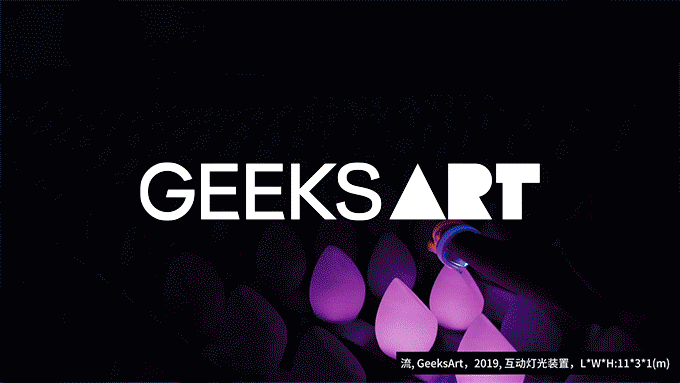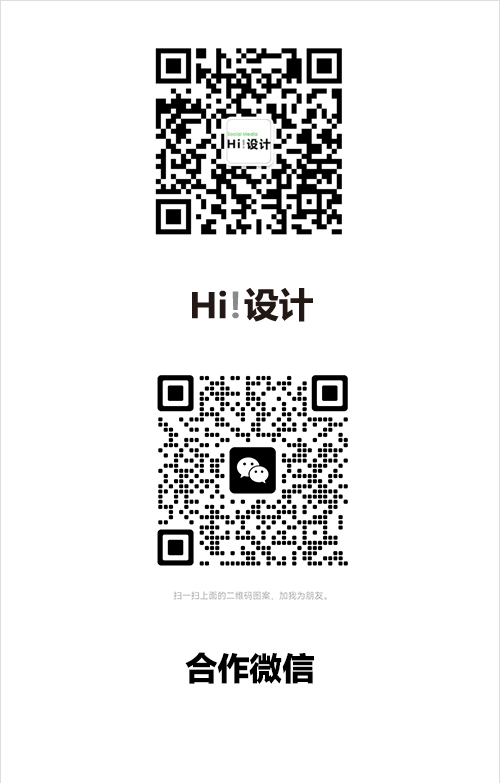 偏锋画廊于2009年入驻北京798艺术区,是中国最早推动抽象艺术研究与发展的重要艺术机构之一。在长足发展的十余年之后,画廊主理人决定邀请建筑营对其空间进行重新改造设计,以进一步完善使用功能,应对未来的发展需求。
偏锋画廊于2009年入驻北京798艺术区,是中国最早推动抽象艺术研究与发展的重要艺术机构之一。在长足发展的十余年之后,画廊主理人决定邀请建筑营对其空间进行重新改造设计,以进一步完善使用功能,应对未来的发展需求。
Opened in 798 Art Zone, Beijing in 2009, PIFO GALLERY is one of the earliest major artintuitions in China dedicated to advancing the research and development of abstract art. After more than a decade of operation, the owner of the gallery invited ARCHSTUDIO to renovate the space, to improve its functions and adapt to future development demands.
 ▲接待区,摄影:金伟琦 Reception area © Jin Weiqi
▲接待区,摄影:金伟琦 Reception area © Jin Weiqi
798艺术区是由上个世纪50年代建成的电子工厂转变而来的当代艺术空间聚集区,该区域中标志性的混凝土拱窗结构是代表性的建筑元素之一。而偏锋画廊的原始建筑并不属于这类特色结构,是一座极为普通的工业建筑——封闭规矩、高挑空、无自然采光的砖混结构方盒子厂房。如何在满足画廊空间使用需求的基础上,塑造其独特的空间感染力与识别性,以此实现画廊品牌加成,是本次改造考虑的首要问题。
798 Art Zone, where PIFO GALLERYis situated, houses a cluster of modern art spaces repurposed from electronics factories built in the 1950s. Distinct from those iconic buildings featuring concrete arched windows in the art zone, PIFO GALLERY is set in an ordinary industrial building — a regularclosed concrete “box”with high ceilings and poor natural daylighting. For renovating the gallery, ARCHSTUDIO’s primary consideration was to satisfyits functional demands while endowing the space with a captivating ambience and a unique visual identity, so as to improve the brand image of the gallery.
 ▲总平面图 © 建筑营设计工作室 Site plan ©ARCHSTUDIO
▲总平面图 © 建筑营设计工作室 Site plan ©ARCHSTUDIO
 ▲原建筑外观©建筑营设计工作室 Original building exterior©ARCHSTUDIO
▲原建筑外观©建筑营设计工作室 Original building exterior©ARCHSTUDIO
 ▲原建筑内部(施工中)©建筑营设计工作室 Original building interior (construction site) ©ARCHSTUDIO
▲原建筑内部(施工中)©建筑营设计工作室 Original building interior (construction site) ©ARCHSTUDIO
设计在既有建筑形式与结构的基础之上,以“光的漏斗”为概念意向,打开原本封闭的盒子,引入多层次的光,并重新梳理功能流线与结构材料关系,营造自然、开放、高效的艺术展览、会客和办公空间。
Based on the existing architectural form and structures, ARCHSTUDIO took “Funnel of Light” as the design concept. The design team opened the originally closed “box” to introduce multi-layer natural lights, and meanwhile reorganized circulation routes, structures and materials, thereby creating a natural, open and efficient space that integrates art exhibition, reception and office functions.
 ▲分析图 © 建筑营设计工作室 Diagrams ©ARCHSTUDIO
▲分析图 © 建筑营设计工作室 Diagrams ©ARCHSTUDIO
 ▲模型图 © 建筑营设计工作室 Models ©ARCHSTUDIO
▲模型图 © 建筑营设计工作室 Models ©ARCHSTUDIO
在临街的建筑立面上植入了两个梯形体量,成为方盒子向外翻开的窗口。一个作为入口门厅链接了建筑和园区街道,另一个梯形体量则作为飘窗为办公区带来自然光和街景。
Two trapezoid-shaped volumes are added to the street-side facade, functioning as a window for opening the “box”outwards. One acts as an entrance foyer that links the building with the outdoor street, and the other serves as a bay window for bringing daylight and street view into the office area.
 ▲主入口,摄影:金伟琦 Main entrance © Jin Weiqi
▲主入口,摄影:金伟琦 Main entrance © Jin Weiqi
 ▲沿街立面,摄影:金伟琦 Street-side facade© Jin Weiqi
▲沿街立面,摄影:金伟琦 Street-side facade© Jin Weiqi

 ▲剖面图 © 建筑营设计工作室 Sections ©ARCHSTUDIO
▲剖面图 © 建筑营设计工作室 Sections ©ARCHSTUDIO
门厅采用清水混凝土浇筑而成,半透明的U型玻璃作为立面,由其朦胧、柔和的光感营造出进入画廊的第一印象。新的加建部分外侧包裹了与旧建筑相似的红砖作为面层材料,与798工业街区景观保持和谐。
The foyer is constructed of fair-faced concrete. Its facade, made of translucent U-shaped glass, creates a haze and soft light-like effect, which defines the first impression when visitors enter the gallery. This new addition is enveloped by red bricks similar to that of the old building, to harmonize with the built environment of the surroundings.
 ▲临街立面,摄影:金伟琦 Street-side facade © Jin Weiqi
▲临街立面,摄影:金伟琦 Street-side facade © Jin Weiqi
展厅空间则利用多个梯形的光筒向天空“借光”。根据旧建筑屋顶为预制混凝土板这一特征,设计对局部预制板进行拆除,增设了线型天窗。
The exhibition space brings in daylight through several trapezoidallight wells. The design team removed some existing precast concrete roofing panels of the old building, and meanwhile added linear skylights.
 ▲屋顶平面图 © 建筑营设计工作室 Roof plan ©ARCHSTUDIO
▲屋顶平面图 © 建筑营设计工作室 Roof plan ©ARCHSTUDIO



 ▲接待区,摄影:金伟琦 Reception area © Jin Weiqi
▲接待区,摄影:金伟琦 Reception area © Jin Weiqi
天窗向下延伸至倾斜的墙面,形成三个大小不一的梯形光井,为其下部的展厅和会客厅带来柔和的自然采光。首层是三个彼此分离而又相互连续的展厅,设计采用密肋砼结构尽量提高室内的高度,密肋梁的截面为倒梯形,在梁之间嵌入了发光灯膜,为展厅带来柔和均质的人工光源。
The skylights are connected with oblique walls,thus forming three trapezoidal light wells of varied sizes, which bring soft natural light to exhibition halls and reception space beneath. The first floor includes three separate yet connected exhibition halls. The design team utilized dense concrete rib beams to enhance the height of the interior space to the greatest extent. The section of rib beams is in trapezoidal shape. Lightingmembrane is inserted in between beams, which adds soft artificial light source to the exhibition space.



 ▲主展厅,摄影:金伟琦 Main exhibition hall © Jin Weiqi
▲主展厅,摄影:金伟琦 Main exhibition hall © Jin Weiqi

 ▲梯形截面的梁之间置入发光灯膜,为展厅提供柔和的光源,摄影:金伟琦 Lighting membrane is inserted in between beams, which brings soft artificial light source to the exhibition space. © Jin Weiqi
▲梯形截面的梁之间置入发光灯膜,为展厅提供柔和的光源,摄影:金伟琦 Lighting membrane is inserted in between beams, which brings soft artificial light source to the exhibition space. © Jin Weiqi
 ▲展厅、旧厂房的大门犹如一件艺术品,讲述着时间的故事,摄影:金伟琦 The door of the exhibition hall is retained from the former old factory, telling the story of past. © Jin Weiqi
▲展厅、旧厂房的大门犹如一件艺术品,讲述着时间的故事,摄影:金伟琦 The door of the exhibition hall is retained from the former old factory, telling the story of past. © Jin Weiqi
由倾斜的墙面塑成梯型的二层会客厅。这里是为接待重要的藏家而设置的,布置休闲、会议、厨房、卫生间等功能。天窗引下的天光洒在倾斜的墙面上,形成独具特色的仪式性会客空间。
The slanting walls shape a trapezoidal reception hall on 2F. It is set up for receiving VIP art collectors, equipped with kitchen, bathroom, leisure and meeting facilities. Daylight penetrates the skylights, and spreads down onto the oblique walls, forming a unique ritualistic reception space.


 ▲接待室,摄影:金伟琦 Reception hall© Jin Weiqi
▲接待室,摄影:金伟琦 Reception hall© Jin Weiqi
 ▲小会客室,摄影:金伟琦 Small reception room © Jin Weiqi
▲小会客室,摄影:金伟琦 Small reception room © Jin Weiqi
前台、会客区、办公区的固定家具均采用混凝土浇筑而成,以岩板作为台面材料,家具与空间发生明确的对应关系。
The fixed furniture at front desk area,reception area and office area are constructed of fair-faced concrete. Sintered stones are used as tabletops. The design created a clear dialogue between furniture and space.
 ▲展厅细部,摄影:金伟琦 Exhibition hall details © Jin Weiqi
▲展厅细部,摄影:金伟琦 Exhibition hall details © Jin Weiqi
 ▲接待室,摄影:金伟琦 Reception hall© Jin Weiqi
▲接待室,摄影:金伟琦 Reception hall© Jin Weiqi
 ▲办公区,摄影:金伟琦 Office area © Jin Weiqi
▲办公区,摄影:金伟琦 Office area © Jin Weiqi

 ▲平面图 © 建筑营设计工作室 Floor plans ©ARCHSTUDIO
▲平面图 © 建筑营设计工作室 Floor plans ©ARCHSTUDIO
 ▲南立面图 © 建筑营设计工作室South elevation ©ARCHSTUDIO
▲南立面图 © 建筑营设计工作室South elevation ©ARCHSTUDIO
 ▲西立面图 © 建筑营设计工作室 West elevation ©ARCHSTUDIO
▲西立面图 © 建筑营设计工作室 West elevation ©ARCHSTUDIO
项目信息——
项目名称:偏锋画廊
项目位置:北京798艺术区
设计公司:建筑营设计工作室
项目设计师:王同辉
结构咨询:朱长安
机电咨询:郑宝伟、李东杰、李忠娟
图片编辑:王同辉
施工团队:国顺西等
建筑面积:880㎡
设计时间:2020.10—2021.01
施工时间:2021.01—2022.02
主要材料:混凝土、微水泥、U型玻璃
摄影师:金伟琦
Project information——
Project name: PIFO GALLERY
Location: 798 Art Zone, Beijing
Design firm: ARCHSTUDIO
Chief designers: Han Wenqiang, Li Xiaoming
Designer: Wang Tonghui
Structural consulting: Zhu Changan
MEP consulting: Zheng Baowei, Li Dongjie, Li Zhongjuan
Image editing: Wang Tonghui
Construction: Guo Shunxi, etc.
Project area: 880 square meters
Design phase: October 2020- January 2021
Construction phase: January 2021- February 2022
Main materials: concrete, micro cement, U-shaped glass
Photography: Jin Weiqi













